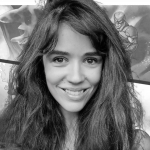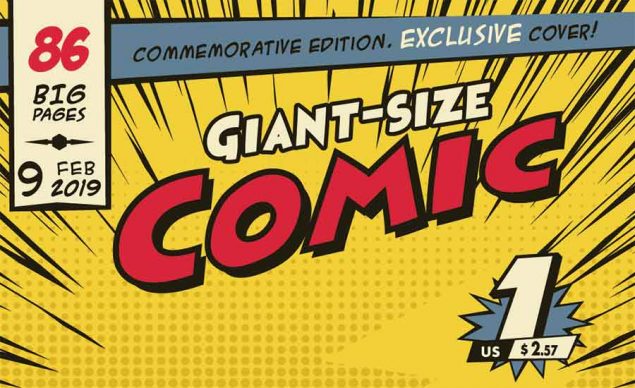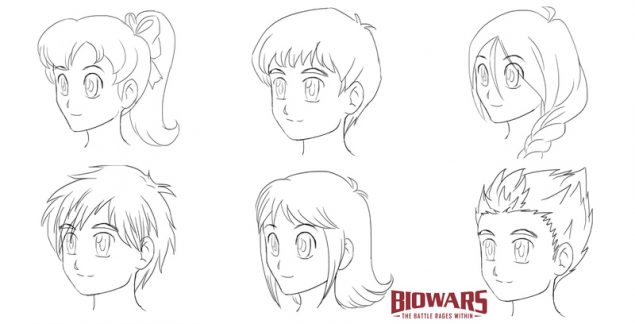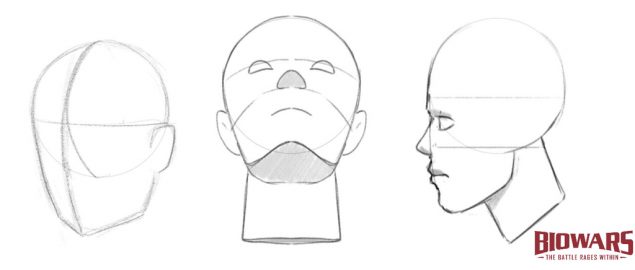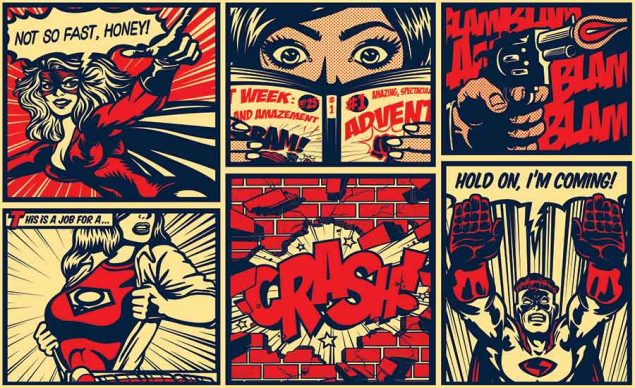Related Resources
Learning how to draw a face well is challenging for most artists.
Did you know that more than 95% of non-artists place the eyes too high on the head when drawing a face?
When you first start drawing, perhaps one of the hardest challenges you will face is figuring out how to draw a human face.
Even if you are an absolute beginner, you’ll master the art of face drawing in no time with his expert guidance.
To make the whole learning process easier for you, Gonçalo created this helpful how-to-draw-a-face sheet. Feel free to download it and use it to follow Gonçalo’s instructions with greater ease.
We also made a tutorial with pictures that will take you through the process of drawing a human face from sketch to adding fine details to your illustration.
Aside from showing you how to draw a face from the front, we’ll also share the simple steps on how to draw a face from the side!
Before we start, just keep one thing in mind — don’t expect to become a great comic book artist overnight because that takes a lot of practice. But here are some tips to help you make the evolution from amateur to expert a whole lot easier.

The Tools You Will Need When Learning How To Draw A Face
From designing a car to building a home, every great creation starts with the right tools — and drawing is no exception.
While the supplies you will need to draw a realistic human face may seem self-explanatory, choosing the right set of tools might just make or break your efforts.
To draw a face, you’ll need the following materials:
- An outlining pen, such as an H pencil for the outlines and the basic shape
- Drawing pencils, like an HB pencil for the more intricate details
- A 4B pencil for the shadows that add to the realistic look
- A kneaded eraser to accentuate the highlights and touch up the mistakes
- A ruler for precisely measured grid lines
- Drawing paper or a sketchbook that features micro-perforations, making corrections easier
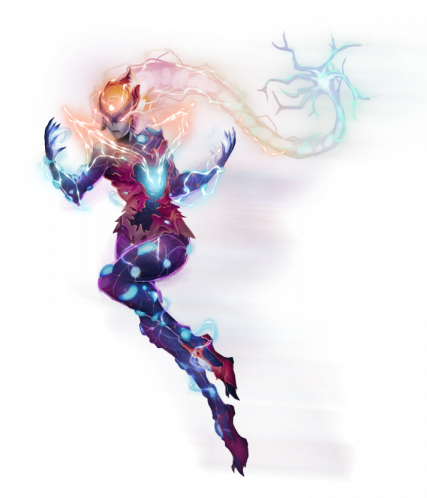
How To Sketch A Face: 3 Steps To Get Started
Drawing a human face may seem challenging at first, especially if you’re not an expert. After all, we have 43 face muscles and we can use them to make around 10,000 facial expressions, so it’s no wonder so many people struggle to illustrate a face.
However, there are ways to simplify the process and make it easier for yourself.
For example, sketching a face is a great way to break the ice and loosen up your hand. Also, since a sketch is not a definitive drawing, you’re less stressed out and more likely to enjoy drawing.
Now, let’s see how to sketch a face!
Step #1: Draw An Oval Head Shape
The first step to sketching a face is to draw an oval head shape. Simply picture an upside-down egg and sketch its shape on your paper.
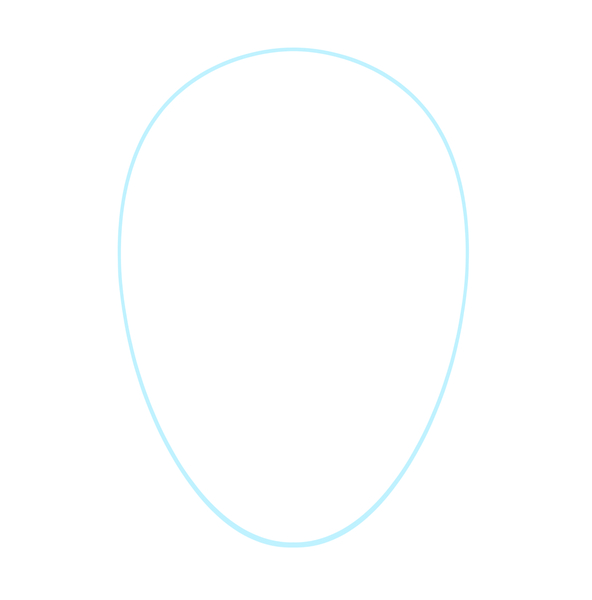
For now, picture looking at your character’s face head-on, and draw the shape from that angle.
Step #2: Segment The Sketch
Once you’ve made this basic shape, you’ll want to add some lines that will help you place the eyes and the nose later on.
First, put a vertical line down the center of your drawing to divide the two halves of your character’s face.
Then, add a horizontal line halfway between the top of the head and your character’s chin. This will help provide some symmetry for the character’s facial features and mark the space where the eyes will be drawn in later.
You can add two more vertical lines on either side of the center line to mark the corners of the eyes and the space for the nose.
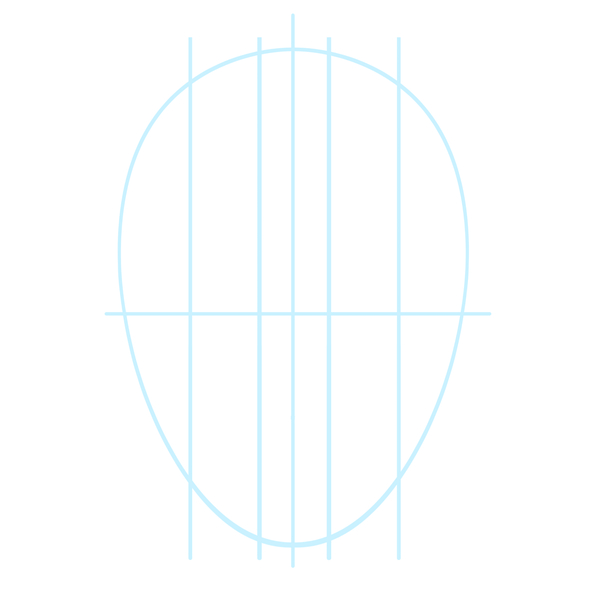
The eyes and the area in between them where the nose is are usually three equal spaces.
Step #3: Add More Guidelines To The Sketch
The next thing you should do is add some standard measurements to block out the rest of the face’s features, including the eyebrows, ears and lips.
You previously added a horizontal line through the center of the sketch to mark where the eyes will be. You can now add another line above this midpoint to show where your character’s eyebrows will be.
Next, place another horizontal line halfway between the line you just made and the bottom of the chin again. This is where the nose will eventually end and where the ears will be placed on the outside of your comic book character’s face.
Now draw another horizontal line midway between the last line and the chin for the location of the mouth.
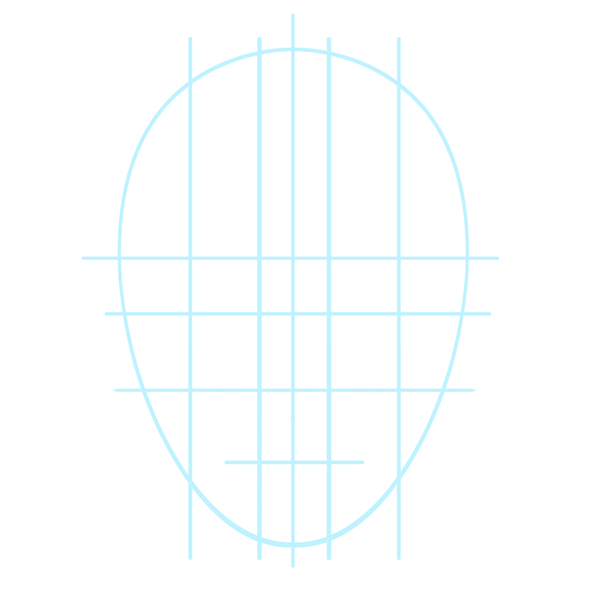
From here, you can really get a sense of how the face will be laid out — but should you need more assistance on where to put everything, you can add more lines as needed by following the image included below.
Each of the lines you make will help ensure your character’s facial features are symmetrical and end up in a realistic spot.
How To Draw A Face Step By Step: 5 Steps To Finesse The Details
Step #1: Draw The Eyes
Now that you’ve got your basic layout, it’s time to start filling in the features of your comic book character.
Let’s start from the top of the head down, to make things easier.
The proper proportion for a person’s eyes, in most cases, is an eye’s distance away from each other.
Begin by drawing your eye as a sideways oval, between the shorter vertical lines you drew earlier.
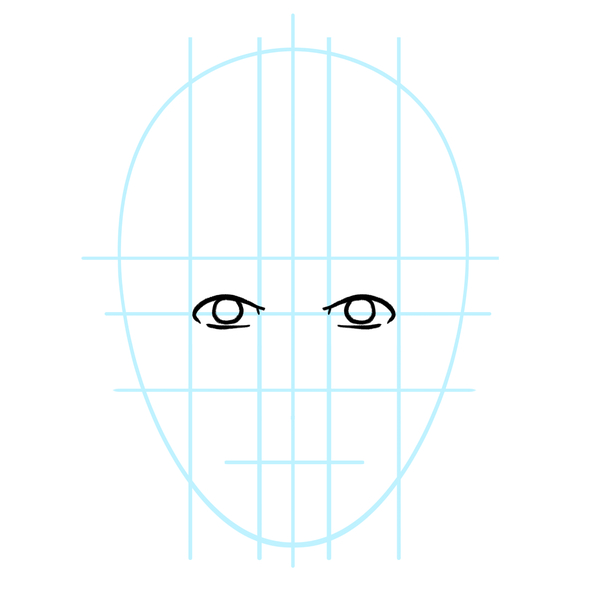
As you draw the second eye, make sure the distance between them is roughly the same width as the eyes themselves. This gives you an ideal space for adding your character’s nose.
Here’s also our detailed guide on how to draw eyes realistically in just seven steps!
Step #2: Add The Nose To Your Face Drawing
Noses come in all shapes and sizes, but for our purposes today, we’re going to focus on the basics.
First, your character’s nose is going to end at the second horizontal line you drew earlier. This is your nose’s length.
When it comes to your nose’s width, you’ll want to fill the gap you made earlier between the eyes — so the edges of the nostrils line up with where your character’s eyes begin.
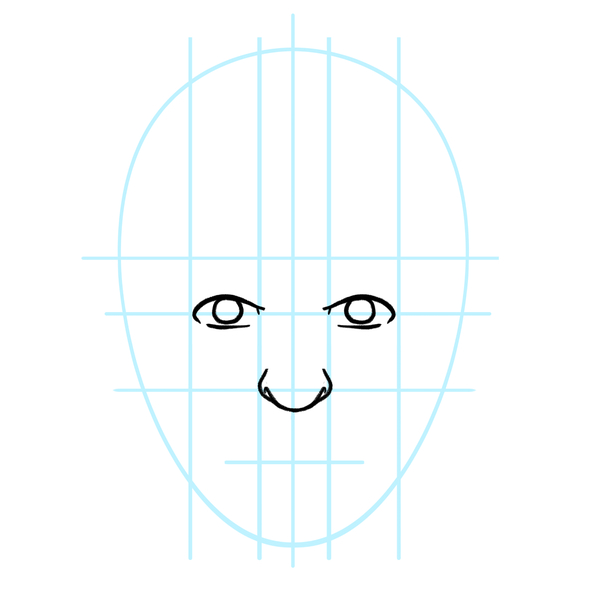
The exact shape of your character’s nose is up to you. The nose is one feature that can give a specific personality to your drawing, so think of the shape that best suits the character you’re drawing.
To learn how to draw a realistic nose in just five steps, check out our step-by-step guide created by Gonçalo!
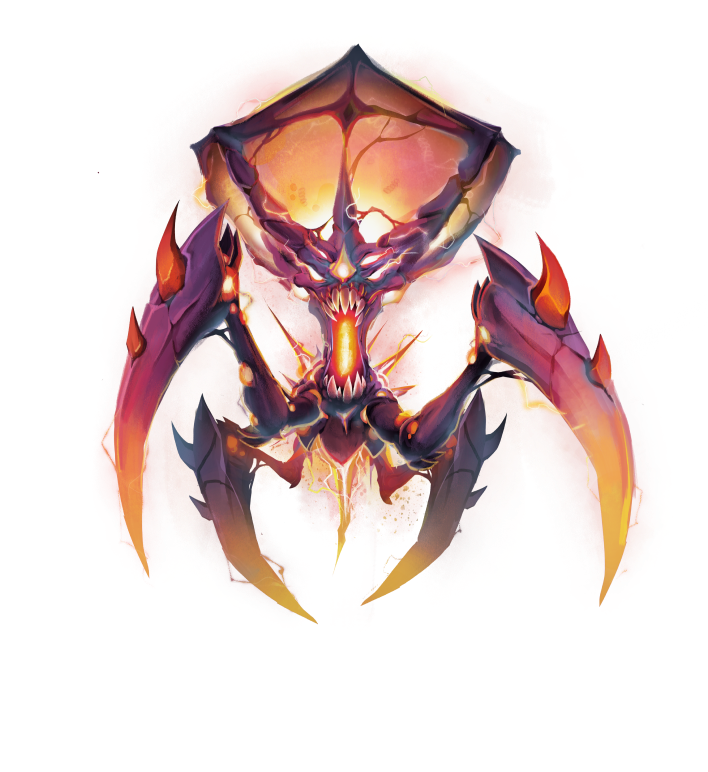
Step #3: Don’t Forget The Eyebrows
If you followed our advice and added an additional horizontal line between the top of the head and the eye level, adding the eyebrows should be quite easy.
The browbone where the eyebrows are located on a human face always follows the lines of the nose — and that’s why you should only tackle the eyebrows once your nose is in place.
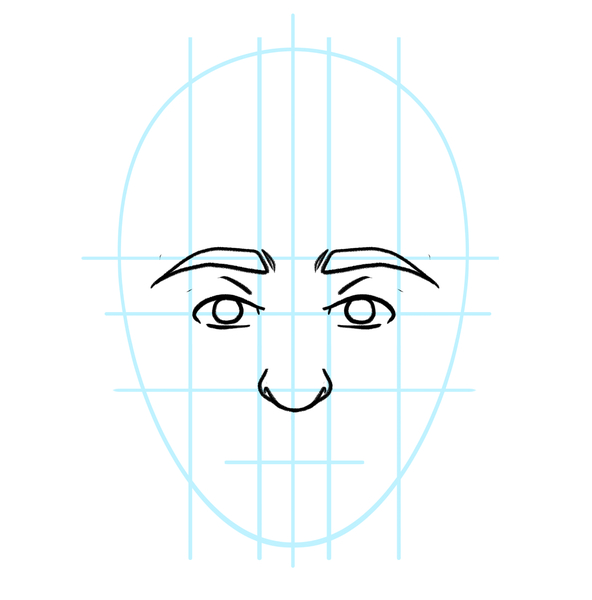
Drawing the eyebrows is where the 4B pencil will come in handy. Go for short, soft strokes to make them bushy, or use long strokes for a more refined look.
And since eyebrows tend to be one of the darkest areas on a face drawing, don’t forget to shade and blend them well!
Step #4: Draw The Mouth
Remember the third horizontal line you drew earlier? That’s where you’ll want to place your character’s mouth.
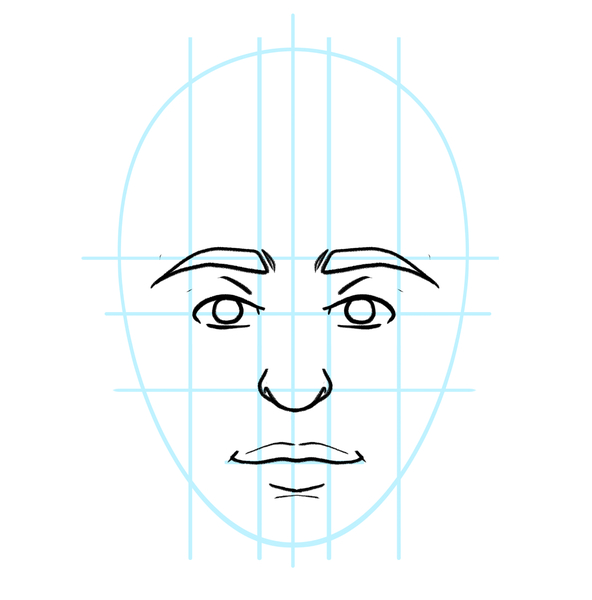
As for the width of the mouth, a typical comic book character’s mouth will start on either side at the center of each eye, or where the pupil is likely located.
Regarding the shape and the size of the lips, this is where you can get as creative as you want. You can make them full, thin, or anywhere in between – the choice is yours.
Just like the nose, lips can also help highlight the personality of your character.
We created a separate guide on mouth drawing, so you can explore each step in great detail!
Step #5: Add The Ears, The Hair And The Final Touches
Drawing ears can seem complicated, but since you’ve already laid out a really great diagram to work with, illustrating them shouldn’t pose too much of a problem.
The top of the ears should touch the horizontal line that marks the position of the eyebrows.
The earlobe should touch the horizontal line you used when drawing your character’s nose.
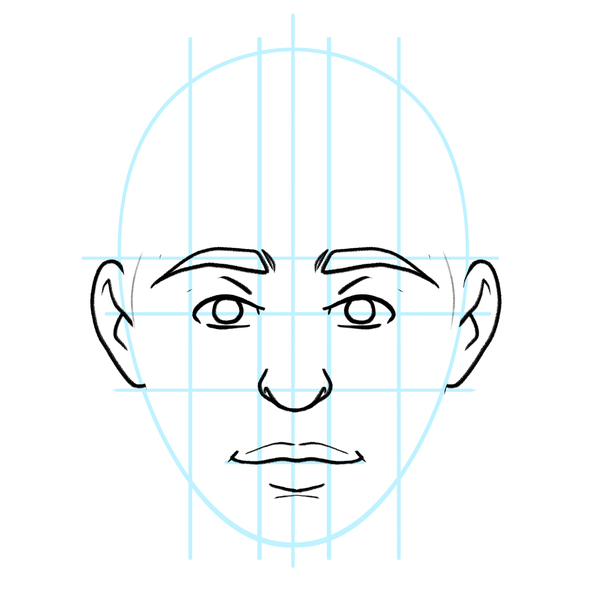
Don’t worry about the details right now, just work on getting the basic shape of the ears down.
if you wish to learn how to draw ears in great detail, this guide on drawing ears is for you!
The hair, on the other hand, might be a bit more time-consuming and complicated to draw.
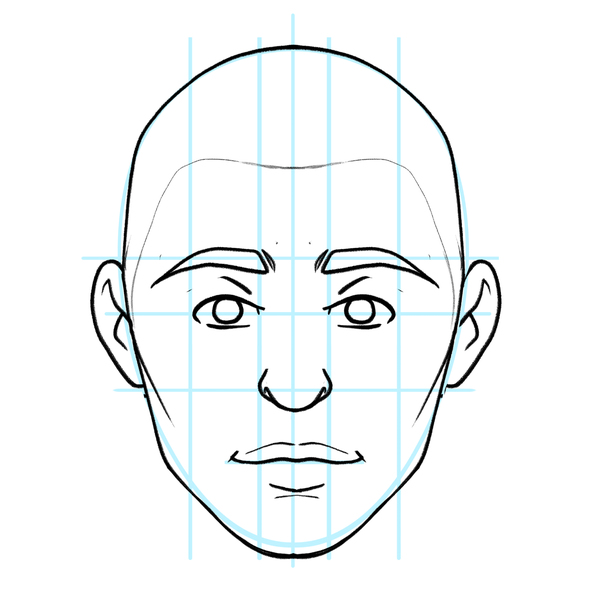
You should first outline the hairline on the forehead and sides of the face with short strokes of the H pencil, following the natural hair growth pattern. Then, start adding volume and texture while moving toward the edges of the hairstyle.
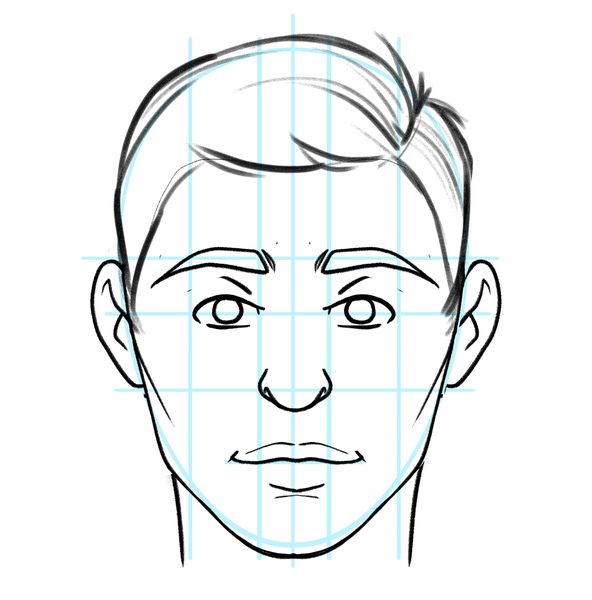
The amount of detail you add to the hair is entirely up to you.
Think about your character’s personality and match that to their hairstyle.
Is your comic book character serious and professional? If it is, a slicked-back look might suit it best. On the other hand, if you wish to portray a wild and unpredictable character, curls or other types of untamed hairstyles might be the best choice.
For the purpose of this exercise, we opted for a short male hairstyle with a parting on the left side.
Once you finish drawing the hair, your sketch is almost ready!
To finalize it, erase the guidelines, like so:
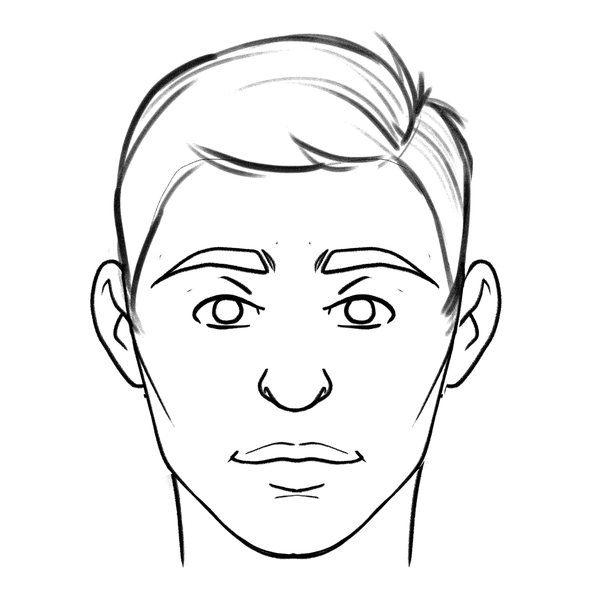
Last but not least, don’t forget about the finishing touches to your drawing:
- Add shadows where appropriate with your 4B pencil
- Lift up some highlights with your eraser
- Blend the key lines and textures
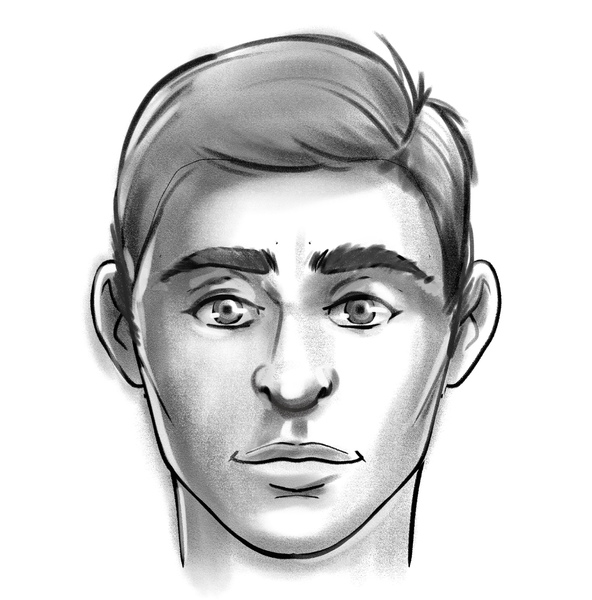
How To Draw A Face From The Side
Once you master the steps to drawing a face from the front, next comes learning how to draw a face from the side.
Step #1 Draw The Base And The Guidelines
For the sketching phase, let’s use an H pencil.
The easiest way to illustrate a face from the side is to first draw a circle.
Make sure to leave enough space below for the shoulders and the upper body:
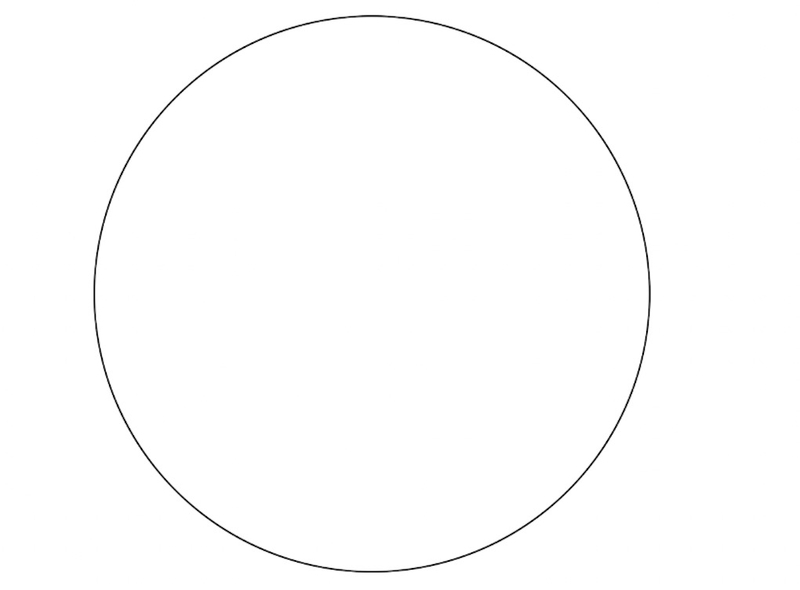
Next, let’s start adding the guidelines — they will help us position parts of the face better.
First up, draw a straight horizontal line in the middle to divide the circle into two equal parts.
Then, draw another horizontal line near the bottom of the circle, like so:
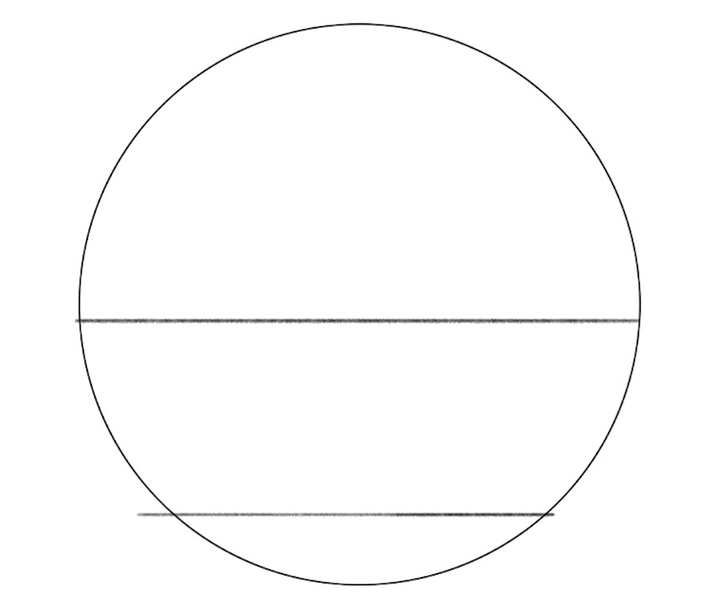
Let’s add one more straight horizontal line below the one that goes through the middle of the circle:
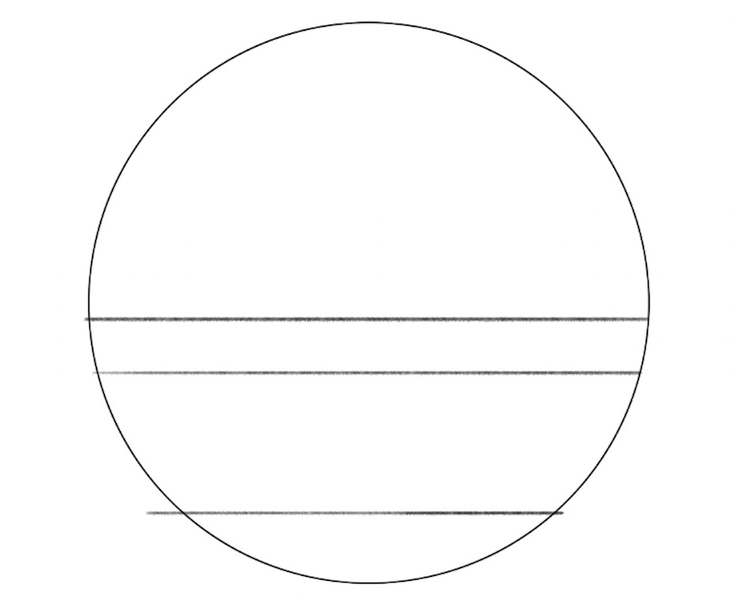
Now, draw another horizontal line under the circle, like this:
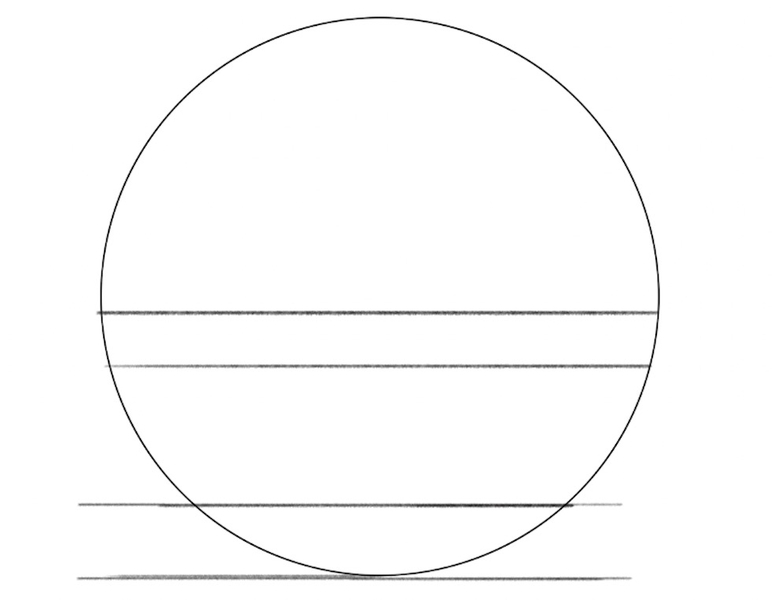
#Step 3 Draw The Face Parts
We’ll now start sketching the body parts.
First up, let’s outline the chin.
To do so, connect the central horizontal line with the one that goes through the lower half of the circle, like this:
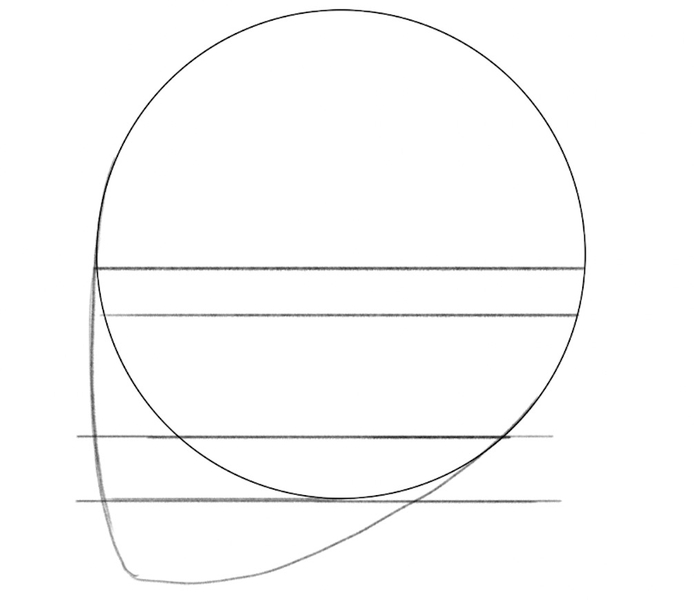
Don’t worry if the chin looks pointy — we’ll tweak its shape soon.
Now, let’s outline the left ear.
Draw it like a reversed “C” shape and place it between the top of the central horizontal line and the guideline in the lower part of the circle, like so:
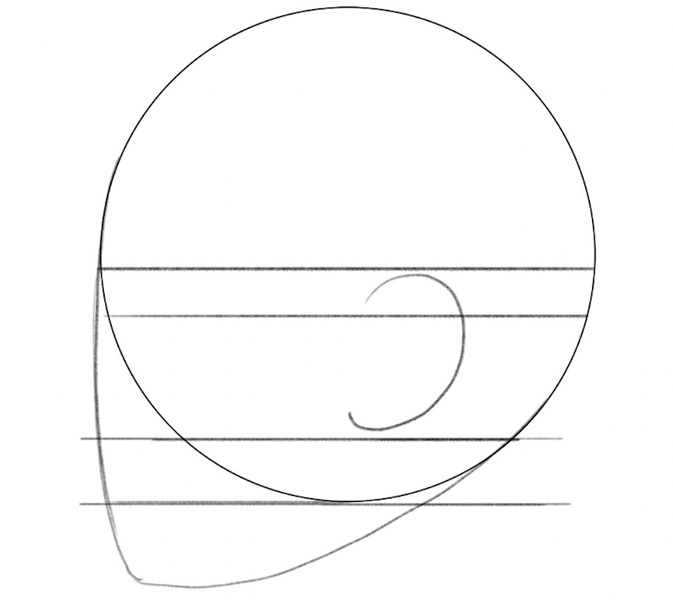
Next, let’s connect the ends of the ear to form an oval-like shape:
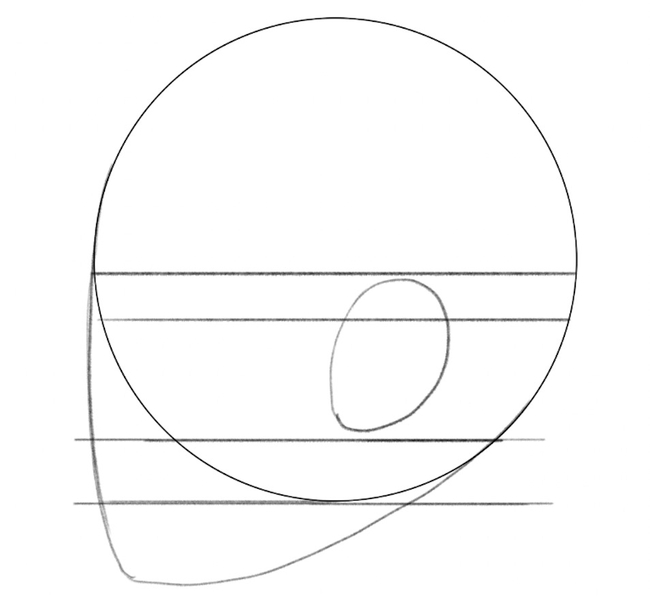
Now, let’s add the nose, the mouth and the neck.
Drawing them from the side is easier than sketching them from the front simply because you don’t have to add as many details.
For the nose, feel free to sketch the shape you like best.
As for the mouth, draw it below the nose, right between the two lower guidelines.
Then, let’s sketch the neck.
It’s simple — all you have to do is draw two lines, like so:
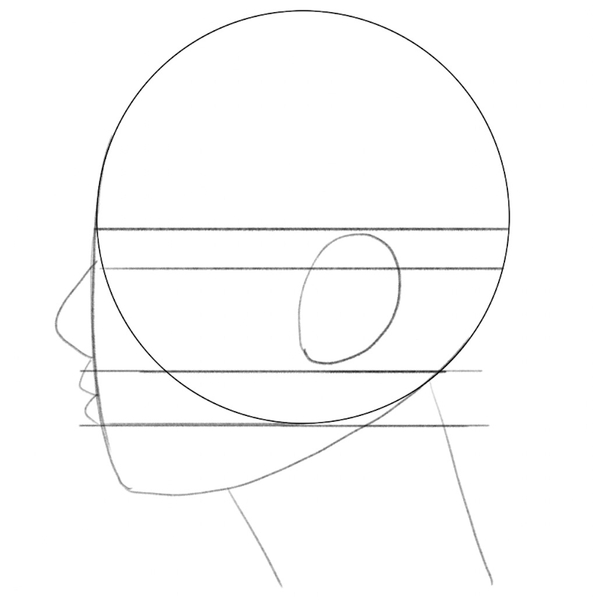
Next comes drawing the eyes.
To do so, simply sketch an acute angle and connect its ends with a straight vertical line.
Then, connect the bottom of the ear with the jaw, like so:
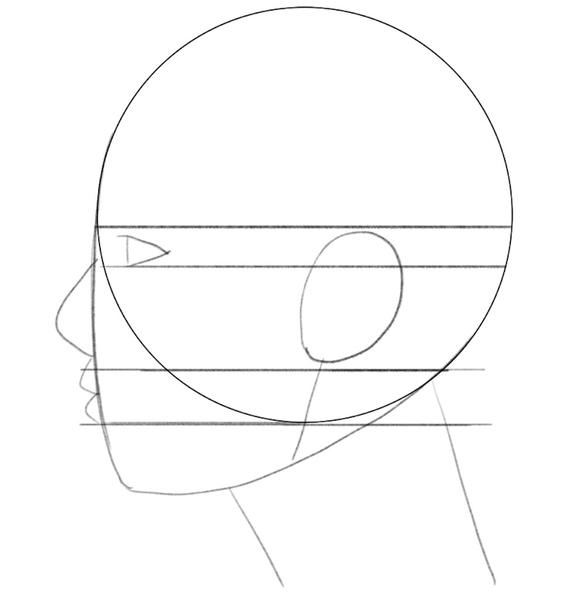
#Step 4 Enhance The Lines
Now’s the time to enhance the lines and add the details to your face drawing.
We recommend using an HB pencil because of its slightly darker lead compared to an H pencil, but you can also apply more pressure to your pencil of choice to create darker lines.
Let’s connect the nose, the mouth and the chin with the rest of the head in a cohesive whole, like this:
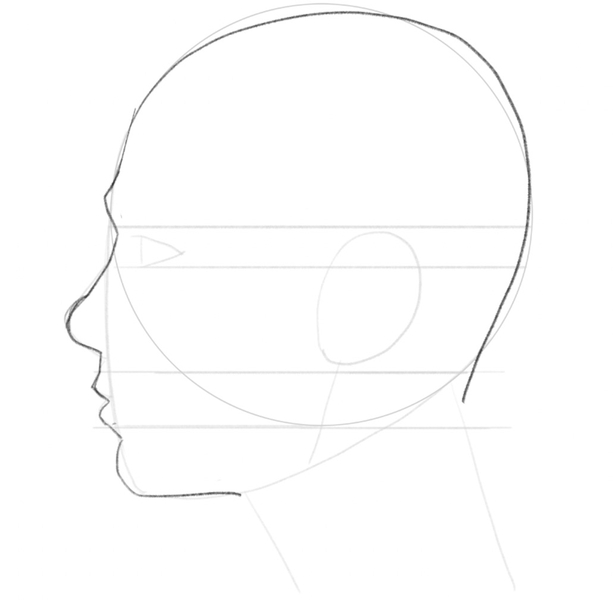
Continue going over the lines and extend them toward the shoulders and the chest:
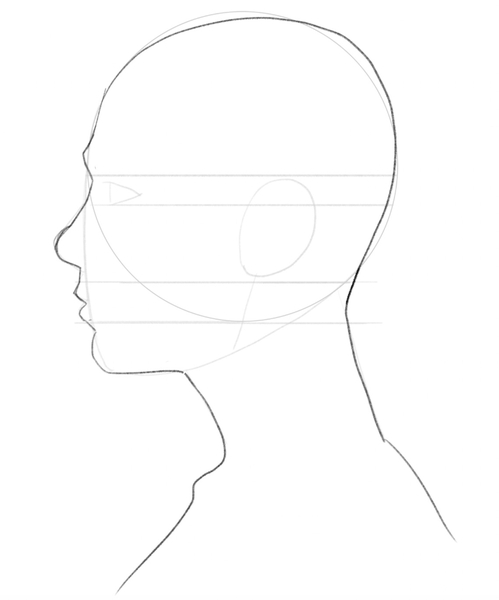
Then, go over the ear:
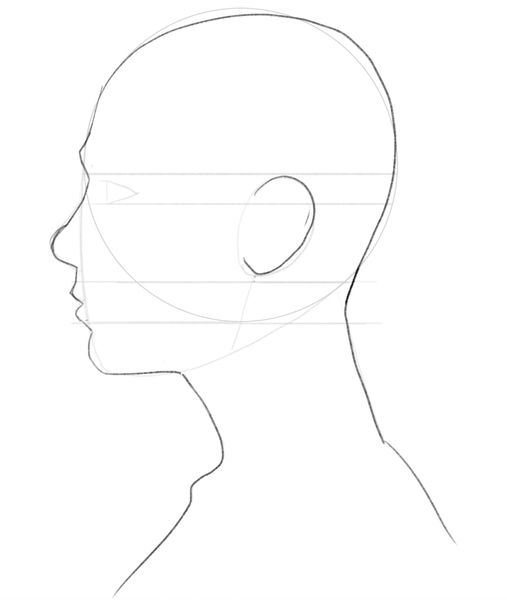
Once you’re done with the ear, enhance the eye shape:
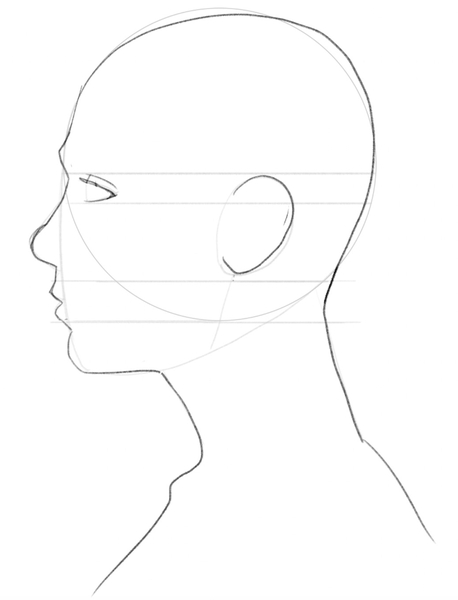
Next, add the eyebrow and the iris and make the lines slightly darker than earlier, like this:
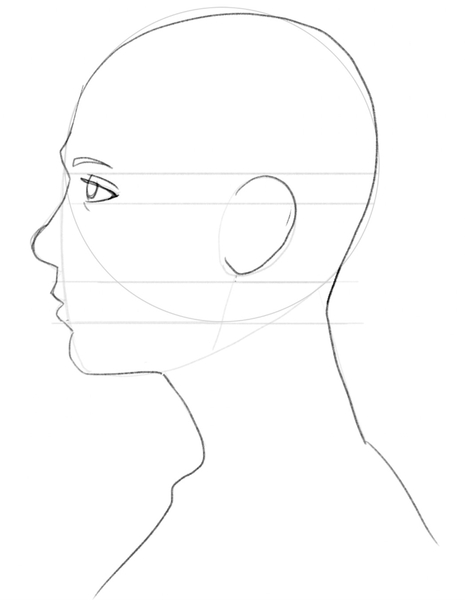
Now, let’s add a nostril.
To draw it, sketch a reversed S-shaped line:
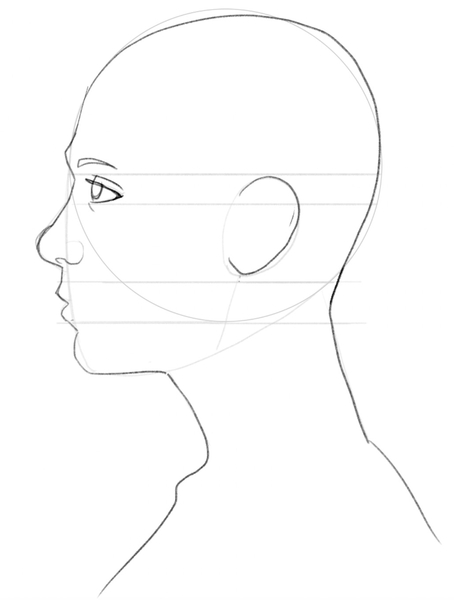
The next step is to draw the jaw.
Follow the guideline that connects the ear to the neck, but instead of drawing a straight line, curve it slightly toward the chin, like this:
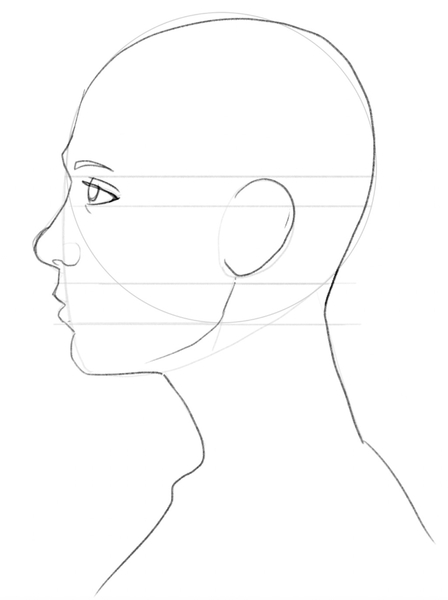
Lastly, let’s draw the lips and finalize the ear.
You can draw the lips as full or as thin as you like.
As for the ears, it’s important not to forget to sketch the earlobe and the helix:
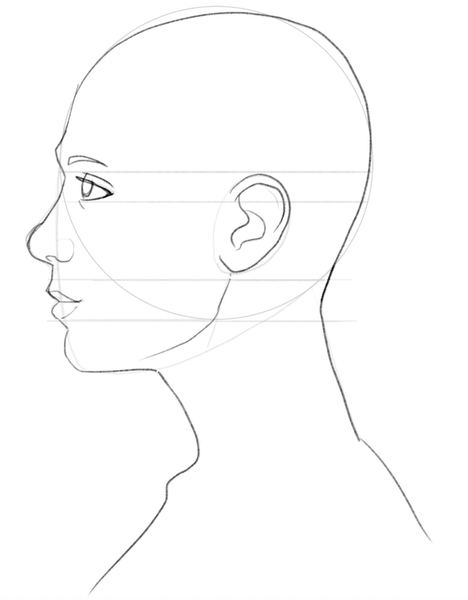
All that’s left to do to finalize your face drawing from the side is to erase the guidelines.
You can use a kneaded eraser and adjust its size and shape depending on the lines you’re removing; of course, any eraser will do, as long as you’re careful not to erase the main sketch:
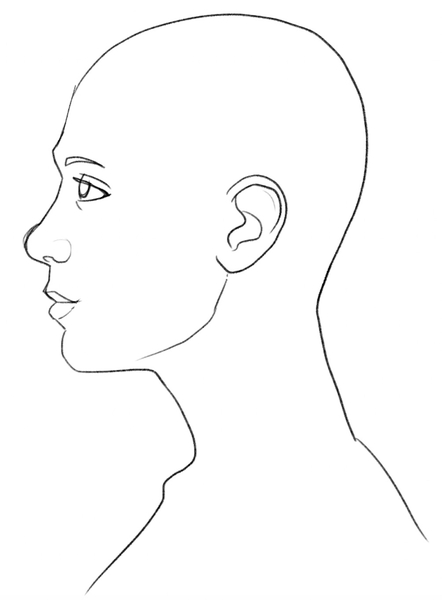
Next: Learn How To Draw A Person!
Now that you know how to draw a face — and a hand from our previous tutorial, next comes learning how to draw a person!
We know that getting proportions, form and volume right may be challenging, but our guide will show you how to draw a person from scratch to the finest of details in nine simple steps.
When you finish learning how to draw a face, we encourage you to continue drawing and keep showing your skills. We have a bunch of step-by-step guides ready, including:
- How to draw head angles
- How to draw male hair
- How to draw anime hair
- How to draw a forest
- How to draw a dog
And much more! Explore our how-to-draw tutorials and learn how to draw with ease!
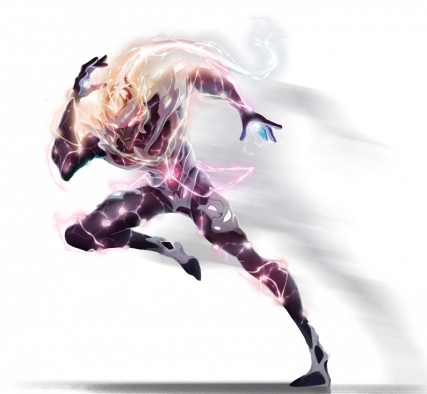
Recap On How To Draw A Human Face
When you first start drawing human faces, remember to keep things simple and focus mostly on getting your proportions right.
As you get better at drawing proportional faces, you can begin experimenting with your character’s features and adding finer details to express specific emotions and create distinct looks.
You can play with colors and textures until you achieve the desired look and draw a face exactly how you pictured it. The important thing is you stay consistent and keep on practicing until you perfect drawing different types of faces.

